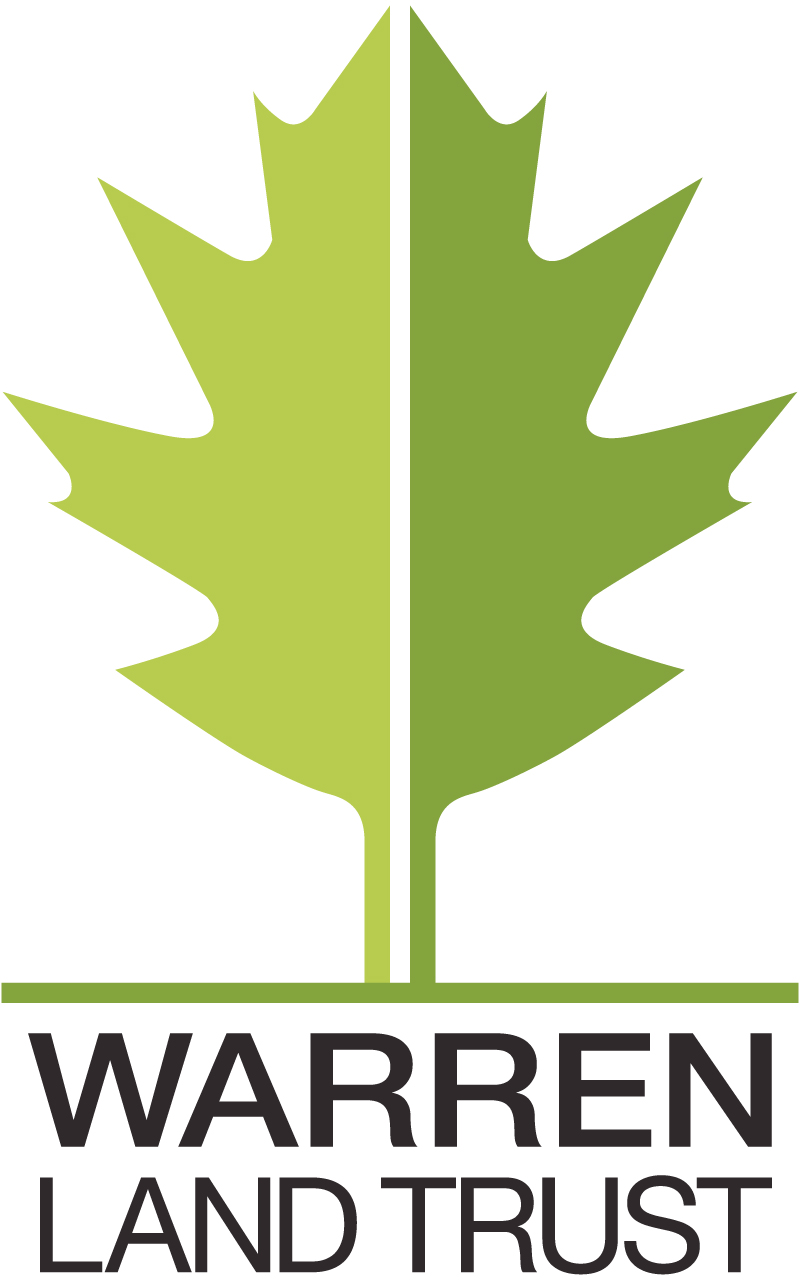THE WARREN CONSERVATOR Fall 2017
From The President’s Desk
With its cooler temperatures and colorful foliage, Fall is a very busy time for New England land trusts. That has certainly been the case for the Warren Land Trust - between events and our regular board meetings, we have had something on the calendar every weekend since Labor Day. If you were unable to join us, we hope you will learn more about what we’ve been up to from this newsletter or our newly updated website, or by attending our annual meeting on November 18th (more information below).
Most of this programming celebrates the natural resources and beauty surrounding us today. Some of it celebrates our history. But one recent event – a lecture I attended on October 15th - was aimed squarely at the future. Coordinated by Small Area Land Trusts of NW Connecticut, the talk’s title was decidedly un-sexy: “Economic Growth and Land Conservation.” But the topic is a timely and important one, as relevant to our corner of Connecticut as on the national level. The speaker was Professor Dan Esty, founder of Yale’s Center for Business and Environment and director of its Center for Environmental Law and Policy. A significant aspect of his career involves an effort to reframe the historic tension between land conservation and economic development, seeking instead balance and mutually reinforcing benefit.
A number of Professor Esty’s suggestions were big-picture: reduce government regulation in favor of economic incentives for environmentally friendly corporate behavior; encourage investment in environmentally sustainable technologies; employ big data to better understand the relation of economic actors to the environment. But he also offered suggestions for our local land trusts. These included reflecting on the desirability of balancing land conservation and economic growth in our own communities; making a compelling case for the value – including the potential economic value – of land conservation; and taking a long-term perspective, both economically and environmentally. He also underscored the importance of partnerships and dialogue: between land trusts and business/economic organizations, between rural and urban communities, and among conservation organizations.
Our mission, of course, is land conservation and protecting the rural character of our town – and we are dedicated to it. At the same time, we recognize the importance of a community that is dynamic and vibrant. There are no easy answers ahead, and the path forward from intention to action is not a clear one. But it seems a path worth exploring as we seek a future that respects and protects our town’s environment and natural resources, while also supporting its economic well-being.
Rebecca Neary
President
